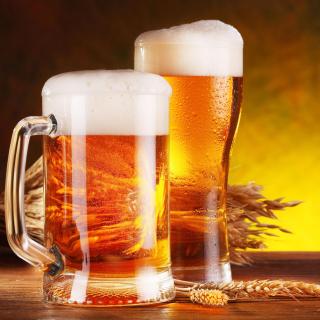
介绍:
20160525ou 一中两外锵锵三人行
今日话题: 考古证明--中国五千年前就会酿啤酒
研究人员在西安市米家崖遗址处发现了5000年前酿制啤酒的证据。
这是迄今在中国发现的最早酿酒证据。
Michael: We all know that China has 5,000 years of history and culture, but now a recent discovery suggests there might be a little more to ancient China than we first thought. Researchers revealed earlier this week that residue on some pottery from an archaeological site in China has revealed the earliest evidence of beer being brewed in the country, left from a recipe dating to around 3,400-2,900 BC. The artifacts showed that people from that era had already mastered what was termed an advanced beer brewing technique that contained elements from East and West. Now, what’s particularly interesting about this is that this discovery indicates that barley had made its way to China some 1,000 years earlier than previously believed from more western regions, in what is now probably the Middle East. I’m surprised by this, because I thought ancient China was more synonymous with tea.
Yoyo: Yeah, normally tea, but also, the white liquor in China is also quite popular, because you can see from many historical books, you can see there have been stories about the kings, the emperors or the servants, they are having the white liquor, the Chinese white liquor.
Michael: Some experts said that [this beer] was actually brewed in very similar ways to those that beer is brewed [in] today. A bio-molecular archaeologist called Patrick McGovern, who is also known as the “Indiana Jones” of ancient beer, he said that there would probably have been very stringent controls on temperature for this kind of beer, as the Chinese brewery was said to be underground, which would, of course, have kept conditions cool. He also said that the introduction of barley, which presumably came from the Middle East, or from further west, into a Chinese drink, suggests it was a somewhat exotic drink, which would have appealed to the elite individuals of the time.
Lincoln: I think it’s very interesting, as well, especially when you bear in mind just how interesting and unique the Chinese beer market is, and it’s very heavily, heavily segmented. You can go from one village to the other and people drink completely different kinds of beer.
Michael: I agree with that sentiment – you get different beers in different cities and everything like that – but they all taste the same. [WY: No, Michael!] In my experience, it’s all very watery and very tasteless. I put it to you that if you did a blind tasting of several different Chinese beers made for the Chinese market – so for example, Snow, Tsingtao, Yanjing, Harbin – I doubt you’d be able to tell much of a difference, to be honest with you.
Yoyo: Michael, you might be a sensitive person, but your tongue is apparently not that sensitive to beer!
Michael: I’m just saying what I see, Wu You, or rather what I taste.
Yoyo: OK, let me tell you something about Chinese beer. Apparently, China is the world’s largest consumer of beer by volume, and some beer that I can introduce you too is Snow Beer, the best-selling beer in the world [and] it is from my hometown. Thank you, I’m feeling so proud. As of 2008, it’s the best-selling beer brand in the world.
Lincoln: But, we should stress, only sold in China.
Michael: You mentioned there, Wu You, Snow Beer is the best-selling beer in the world; Tsingtao, also Chinese, is number two; Yanjing, also Chinese, is number six, and they’re all terrible!
Lincoln: Maybe we should move onto something else as well, because there’s been a really vibrant development of the craft beer scene here in Beijing, Michael.
Michael: The rise of craft beer in places like Beijing and Shanghai over the last few years, I do think that’s directly related to the fact that mass-produced Chinese beer, like Tsingtao and Snow and Yanjing, is very weak, and it caters for what has traditionally, I suppose, been the Chinese taste, and I think, as more people become more cosmopolitan and go abroad and try different kinds of beer, I think Chinese people are coming back to China with raised expectations of what they want from a glass of beer, and I think that directly contributes to the rise of craft breweries in Beijing. You see a lot of them in Beijing and Shanghai, and maybe a lot of them are set up by foreigners, you know, people from America or the UK or wherever else, who want to recreate an American style of craft beer, and that’s all well and good, but you’re only going to survive as a business model if you cater to the Chinese market too. If you look at any of the brewpubs that you see in Beijing here, I think you’ll see a roughly 50:50 split, or even more Chinese people in there than foreigners, and I think this is a reaction to the Snow and the Yanjing and the Tsingtao and whatever else, which is very cheap, but also very weak and very tasteless. I think it’s a reaction to that.
大家还在听

